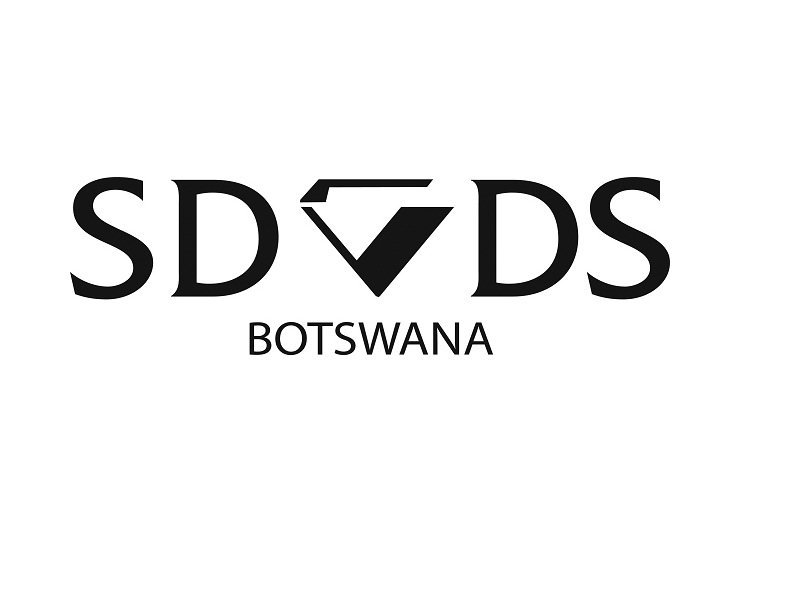Data Analyst Career Path: Complete Roadmap for Beginners 2025
The data analyst profession has emerged as one of the most sought-after careers in today’s digital economy. With companies generating unprecedented amounts of data, the demand for skilled professionals who can transform raw information into actionable insights has skyrocketed. If you’re considering a career transition or starting fresh in the tech industry, becoming a data analyst offers excellent job security, competitive salaries, and the opportunity to make meaningful business impact.
This comprehensive guide will walk you through everything you need to know about pursuing a data analyst career in 2025, from essential skills and educational pathways to salary expectations and advancement opportunities.
What is a Data Analyst?
A data analyst is a professional who collects, processes, and interprets data to help organizations make informed business decisions. They serve as the bridge between raw data and strategic insights, translating complex information into understandable reports and visualizations that guide company leadership.
Data analysts work across virtually every industry, from healthcare and finance to retail and technology. Their primary responsibility involves identifying trends, patterns, and anomalies in data sets that can inform business strategy, improve operational efficiency, or solve specific organizational challenges.
The role has evolved significantly in recent years, with modern data analysts expected to be proficient in various tools and technologies while possessing strong communication skills to present findings to non-technical stakeholders.
Data Analyst Job Market in 2025
The data analyst job market continues to experience robust growth, with the Bureau of Labor Statistics projecting a 25% increase in data analyst positions through 2030 – much faster than the average for all occupations. This growth is driven by the increasing digitization of business processes and the recognition that data-driven decision making provides competitive advantages.
Several factors contribute to the strong job market for data analysts in 2025:
Digital Transformation Acceleration: Companies across all sectors are investing heavily in digital infrastructure, creating massive amounts of data that require analysis and interpretation.
Remote Work Opportunities: The shift toward remote and hybrid work models has expanded job opportunities for data analysts, allowing professionals to work for companies regardless of geographic location.
Industry Diversification: While technology companies have traditionally been the largest employers of data analysts, industries like healthcare, retail, manufacturing, and government are rapidly increasing their hiring of data professionals.
Artificial Intelligence Integration: Rather than replacing data analysts, AI tools are augmenting their capabilities, creating new opportunities for professionals who can work alongside machine learning systems.
Essential Skills for Data Analysts
Success as a data analyst requires a combination of technical expertise, analytical thinking, and communication abilities. Here are the core competencies you’ll need to develop:
Technical Skills
SQL (Structured Query Language): SQL remains the foundation of data analysis, enabling professionals to extract, manipulate, and analyze data from relational databases. Mastering SQL is non-negotiable for aspiring data analysts, as it’s used in virtually every data-related role.
Excel and Google Sheets: While not as glamorous as programming languages, spreadsheet proficiency is essential for many data analyst positions. Advanced Excel skills including pivot tables, VLOOKUP, and macro creation are highly valued by employers.
Python or R Programming: At least one programming language is crucial for modern data analysis. Python is generally more beginner-friendly and widely used in business contexts, while R excels in statistical analysis and academic research.
Data Visualization Tools: Proficiency in tools like Tableau, Power BI, or Looker is essential for presenting data insights effectively. The ability to create compelling visualizations that tell a story with data is what separates good analysts from great ones.
Statistics and Statistical Software: Understanding descriptive statistics, hypothesis testing, regression analysis, and probability theory provides the mathematical foundation for accurate data interpretation.
Soft Skills
Critical Thinking: Data analysts must approach problems systematically, question assumptions, and identify potential biases in data or analysis methods.
Communication: The ability to explain complex findings to non-technical audiences is crucial. This includes both written reports and verbal presentations to stakeholders at various organizational levels.
Business Acumen: Understanding industry-specific challenges and how data analysis can address business problems makes analysts more valuable to their organizations.
Attention to Detail: Data analysis requires precision, as small errors can lead to incorrect conclusions and poor business decisions.
Curiosity and Continuous Learning: The data field evolves rapidly, requiring professionals to stay current with new tools, techniques, and industry trends.
Educational Pathways for Data Analysts
There are multiple routes to becoming a data analyst, ranging from traditional degree programs to self-directed learning and bootcamps. The best path depends on your current background, learning style, and career timeline.
Traditional Degree Programs
Bachelor’s Degree Options: While not always required, a bachelor’s degree in fields like statistics, mathematics, computer science, economics, or business analytics provides a strong foundation. Many successful data analysts also come from diverse backgrounds including psychology, sociology, and liberal arts, demonstrating that analytical thinking skills can be developed in various contexts.
Master’s Degree Programs: A master’s in data science, business analytics, or statistics can accelerate career advancement and may be preferred for senior-level positions. These programs typically provide deeper theoretical knowledge and exposure to advanced analytical techniques.
Online Degree Programs: Accredited online programs offer flexibility for working professionals or those unable to attend traditional campus-based programs. Many reputable universities now offer fully online data analytics degrees.
Alternative Learning Pathways
Data Analytics Bootcamps: Intensive bootcamp programs typically last 3-6 months and focus on practical skills needed for entry-level positions. These programs often include career services and job placement assistance.
Online Courses and Certifications: Platforms like Coursera, edX, and Udemy offer comprehensive data analytics courses. Popular options include Google Data Analytics Certificate, IBM Data Analyst Certificate, and Microsoft Certified: Data Analyst Associate.
Self-Directed Learning: With abundant free resources available online, motivated individuals can develop data analyst skills independently. This approach requires strong self-discipline but offers maximum flexibility and cost-effectiveness.
Professional Certifications
Industry certifications can validate your skills and make you more attractive to employers:
- Google Data Analytics Professional Certificate
- Microsoft Certified: Data Analyst Associate
- Tableau Desktop Certified Associate
- SAS Certified Specialist
- IBM Data Analyst Professional Certificate
Data Analyst Salary Expectations
Data analyst salaries vary significantly based on experience level, geographic location, industry, and company size. Here’s what you can expect to earn in 2025:
Entry-Level Data Analyst Salary
Entry-level data analysts in the United States typically earn between $45,000 and $65,000 annually. Major metropolitan areas like San Francisco, New York, and Seattle generally offer higher starting salaries to compensate for increased living costs.
Factors that can increase entry-level salaries include:
- Relevant internship experience
- Strong portfolio demonstrating practical skills
- Industry-specific knowledge
- Technical certifications
Mid-Level Data Analyst Salary
With 2-5 years of experience, data analysts can expect salaries ranging from $65,000 to $95,000. At this level, professionals typically have specialized in specific tools or industries and can work more independently on complex projects.
Senior Data Analyst Salary
Senior data analysts with 5+ years of experience earn between $90,000 and $130,000 annually. These professionals often lead projects, mentor junior team members, and collaborate directly with senior management on strategic initiatives.
Industry Variations
Certain industries consistently pay premium salaries for data analyst roles:
Technology: $70,000 – $140,000 Finance: $65,000 – $125,000 Healthcare: $60,000 – $110,000 Consulting: $70,000 – $135,000 Government: $55,000 – $95,000
Geographic Salary Differences
Location significantly impacts data analyst salaries:
Highest Paying Cities:
- San Francisco Bay Area: $85,000 – $150,000
- New York City: $75,000 – $135,000
- Seattle: $70,000 – $130,000
- Boston: $70,000 – $125,000
- Washington, DC: $70,000 – $120,000
Mid-Tier Markets:
- Chicago: $60,000 – $110,000
- Atlanta: $55,000 – $100,000
- Denver: $60,000 – $105,000
Career Advancement Opportunities
The data analyst role serves as an excellent launching pad for various career advancement opportunities within the data and analytics field.
Senior Data Analyst
The natural progression from data analyst involves taking on more complex projects, mentoring junior staff, and contributing to strategic planning. Senior data analysts often specialize in specific areas like customer analytics, financial modeling, or operational optimization.
Data Scientist
Many data analysts transition to data science roles, which involve more advanced statistical modeling, machine learning, and predictive analytics. This transition typically requires additional education in advanced statistics and programming skills.
Business Intelligence Analyst
BI analysts focus on developing dashboards, reports, and data infrastructure that enable self-service analytics across organizations. This role combines technical skills with deep business understanding.
Analytics Manager
Management roles involve overseeing analytics teams, setting strategic direction for data initiatives, and communicating insights to executive leadership. Strong leadership and communication skills are essential for this career path.
Data Engineer
Some analysts transition to data engineering roles, focusing on building and maintaining the infrastructure that enables data analysis. This path requires stronger programming skills and system architecture knowledge.
Product Manager
Data analysts with strong business acumen sometimes move into product management roles, where they use analytical skills to guide product development decisions and measure success metrics.
Building Your Data Analyst Portfolio
A strong portfolio is crucial for landing your first data analyst position and demonstrating your capabilities to potential employers.
Essential Portfolio Components
Real-World Projects: Include 3-5 projects that showcase different aspects of data analysis, from data cleaning and exploration to visualization and insights generation. Use publicly available datasets or create projects based on hypothetical business scenarios.
Diverse Data Sources: Demonstrate your ability to work with various data types and sources, including APIs, databases, CSV files, and web scraping.
Clear Documentation: Each project should include clear explanations of your methodology, assumptions, and findings. Write as if you’re presenting to business stakeholders who need to understand and act on your analysis.
Technical Variety: Show proficiency across different tools and techniques. Include projects using SQL, Python or R, Excel, and data visualization tools.
Business Impact: Whenever possible, frame your projects in terms of business value. Explain how your analysis could drive decisions or solve real problems.
Portfolio Platforms
GitHub: Essential for showcasing code and demonstrating version control skills. Make sure your repositories are well-organized with clear README files.
Personal Website: Create a professional website that serves as a central hub for your portfolio. Include an about section, project showcase, and contact information.
Tableau Public: Share interactive dashboards and visualizations that demonstrate your data storytelling abilities.
Kaggle: Participate in competitions and share notebooks to demonstrate your problem-solving approach and technical skills.
Job Search Strategies for Data Analysts
Landing your first data analyst role requires a strategic approach to the job search process.
Where to Find Data Analyst Jobs
Job Boards: LinkedIn, Indeed, Glassdoor, and AngelList are primary sources for data analyst positions. Set up job alerts with relevant keywords to stay informed about new opportunities.
Company Websites: Many companies post positions exclusively on their career pages. Identify target companies and check their websites regularly.
Networking: Attend data science meetups, join professional associations, and connect with data professionals on LinkedIn. Many positions are filled through referrals before being publicly posted.
Recruitment Agencies: Specialized tech recruiters often have exclusive access to positions and can provide valuable guidance throughout the interview process.
Resume Optimization
Keywords: Incorporate relevant technical skills and tools mentioned in job descriptions. Use both acronyms and full terms (e.g., “SQL” and “Structured Query Language”).
Quantified Achievements: Where possible, include specific metrics that demonstrate the impact of your work. For example, “Improved data processing efficiency by 40%” or “Analyzed customer data for 50,000+ users.”
Project Highlights: Include 2-3 relevant projects that demonstrate key skills required for the position.
Technical Skills Section: Create a dedicated section listing your proficiencies in programming languages, databases, visualization tools, and statistical methods.
Interview Preparation
Technical Interviews: Practice SQL queries, statistical concepts, and case study problems. Be prepared to walk through your analytical approach to solving business problems.
Behavioral Questions: Prepare examples that demonstrate problem-solving abilities, teamwork, and communication skills using the STAR method (Situation, Task, Action, Result).
Portfolio Presentation: Be ready to discuss your portfolio projects in detail, including challenges you faced and how you overcame them.
Company Research: Understand the company’s business model, challenges, and how data analysis fits into their strategy.
Tools and Technologies to Master
Staying current with data analysis tools and technologies is crucial for career success and advancement.
Database Technologies
SQL Variants: While standard SQL is universal, familiarize yourself with specific implementations like MySQL, PostgreSQL, or SQL Server depending on your target industry.
NoSQL Databases: Understanding MongoDB, Cassandra, or other NoSQL systems is increasingly valuable as companies work with diverse data types.
Cloud Platforms: Gain experience with cloud-based data services like Amazon RDS, Google BigQuery, or Microsoft Azure SQL Database.
Programming Languages
Python: Focus on libraries like Pandas for data manipulation, NumPy for numerical computing, and Matplotlib/Seaborn for visualization.
R: Particularly valuable for statistical analysis and academic research environments. Key packages include dplyr, ggplot2, and tidyr.
JavaScript: Useful for web-based data visualizations and dashboard development.
Visualization and BI Tools
Tableau: Industry-leading data visualization platform with strong job market demand.
Power BI: Microsoft’s business intelligence solution, popular in enterprise environments.
Looker: Google’s BI platform, gaining traction in cloud-first organizations.
Qlik Sense: Associative analytics platform popular in certain industries.
Emerging Technologies
Machine Learning: Basic understanding of ML concepts and tools like scikit-learn can differentiate you from other candidates.
Cloud Computing: Familiarity with AWS, Google Cloud, or Azure is increasingly important as data infrastructure moves to the cloud.
Big Data Technologies: While not always required for analyst roles, understanding Hadoop, Spark, or similar technologies can be valuable for senior positions.
Industry Specializations
Data analysts can specialize in specific industries or functional areas to increase their marketability and earning potential.
Healthcare Analytics
Healthcare organizations generate vast amounts of data from electronic health records, clinical trials, and patient monitoring systems. Healthcare data analysts focus on improving patient outcomes, reducing costs, and ensuring regulatory compliance.
Key Skills: Understanding of HIPAA regulations, medical terminology, and healthcare metrics like readmission rates and patient satisfaction scores.
Career Opportunities: Hospitals, pharmaceutical companies, health insurance providers, and healthcare technology companies.
Financial Analytics
Financial services companies rely heavily on data analysis for risk management, fraud detection, regulatory compliance, and customer acquisition.
Key Skills: Financial modeling, risk assessment, regulatory knowledge (SOX, Basel III), and familiarity with financial instruments.
Career Opportunities: Banks, investment firms, insurance companies, fintech startups, and regulatory agencies.
Marketing Analytics
Marketing analysts help companies understand customer behavior, optimize marketing campaigns, and measure return on investment across various channels.
Key Skills: Customer segmentation, A/B testing, attribution modeling, and familiarity with marketing platforms like Google Analytics and Facebook Ads Manager.
Career Opportunities: Digital marketing agencies, e-commerce companies, consumer goods manufacturers, and media companies.
Operations Analytics
Operations analysts focus on improving efficiency, reducing costs, and optimizing business processes across supply chain, manufacturing, and service delivery functions.
Key Skills: Process improvement methodologies (Six Sigma, Lean), supply chain optimization, and quality control statistics.
Career Opportunities: Manufacturing companies, logistics providers, retail chains, and consulting firms.
Remote Work Opportunities
The shift toward remote work has significantly expanded opportunities for data analysts, allowing professionals to work for companies regardless of geographic location.
Benefits of Remote Data Analyst Positions
Expanded Job Market: Access to positions with companies across the country and internationally, increasing opportunities for specialized roles or higher salaries.
Cost Savings: Elimination of commuting costs and the ability to live in lower-cost areas while earning salaries from high-cost markets.
Work-Life Balance: Greater flexibility in managing work schedules and personal responsibilities.
Reduced Geographic Constraints: Ability to work for dream companies without relocating.
Challenges of Remote Work
Communication: Data analysts must be proactive in communicating findings and collaborating with team members across different time zones.
Self-Discipline: Working from home requires strong time management and the ability to maintain productivity without direct supervision.
Technology Requirements: Reliable internet connection and appropriate hardware are essential for handling large datasets and complex analyses.
Success Strategies for Remote Data Analysts
Over-Communication: Provide regular updates on project progress and be responsive to messages and requests for information.
Documentation: Maintain detailed documentation of analyses, methodologies, and findings to facilitate collaboration with remote team members.
Professional Development: Take advantage of online learning opportunities to stay current with industry trends and technologies.
Networking: Participate in virtual meetups, conferences, and professional associations to maintain connections within the data community.
Future Trends in Data Analytics
Understanding emerging trends in data analytics can help you position yourself for long-term career success.
Artificial Intelligence Integration
AI tools are augmenting data analyst capabilities rather than replacing human analysts. Professionals who can work effectively with AI-powered analytics tools will be most valuable to employers.
Automated Insights: Tools that automatically identify patterns and anomalies in data, allowing analysts to focus on interpretation and strategic recommendations.
Natural Language Processing: AI systems that can generate written reports and explanations of data findings, enhancing analyst productivity.
Predictive Analytics: Machine learning models that help analysts forecast future trends and outcomes with greater accuracy.
Real-Time Analytics
The demand for real-time data analysis continues to grow as businesses seek to make faster decisions and respond quickly to changing market conditions.
Streaming Data: Analysts must become comfortable working with continuously flowing data streams rather than static datasets.
Dashboard Development: Skills in creating real-time dashboards and alerts become increasingly valuable.
Edge Computing: Understanding how data is processed at the point of collection rather than in centralized data centers.
Data Privacy and Ethics
Growing awareness of data privacy and ethical considerations in analytics creates new opportunities for specialists in these areas.
Regulatory Compliance: Knowledge of GDPR, CCPA, and other data protection regulations becomes essential.
Ethical AI: Understanding bias in algorithms and ensuring fair and transparent analytical processes.
Data Governance: Implementing policies and procedures to ensure data quality, security, and appropriate use.
Getting Started: Your 90-Day Action Plan
Here’s a practical roadmap for beginning your data analyst journey:
Days 1-30: Foundation Building
Week 1-2: Complete basic SQL tutorials and practice with sample databases. Start with SQLite or use online platforms like W3Schools SQL Tryit Editor.
Week 3-4: Begin Excel training, focusing on pivot tables, VLOOKUP, and basic statistical functions. Practice with real datasets from sources like Kaggle or government open data portals.
Days 31-60: Skill Development
Week 5-6: Start learning Python or R, focusing on data manipulation libraries. Complete online courses or tutorials specific to data analysis applications.
Week 7-8: Begin working on your first portfolio project using a publicly available dataset. Focus on the complete analytical process from data cleaning to insights presentation.
Days 61-90: Portfolio and Job Preparation
Week 9-10: Complete 2-3 additional portfolio projects showcasing different skills and industries. Start building your professional website or GitHub portfolio.
Week 11-12: Begin networking activities, optimize your LinkedIn profile, and start applying for entry-level positions or internships.
Conclusion
The data analyst career path offers excellent opportunities for professionals seeking a rewarding career in the growing field of data and analytics. With strong job market demand, competitive salaries, and diverse advancement opportunities, data analysis provides a solid foundation for long-term career success.
Success as a data analyst requires dedication to continuous learning, as tools and technologies evolve rapidly. However, the core skills of critical thinking, problem-solving, and communication remain constant and transferable across industries and roles.
Whether you’re starting fresh or transitioning from another field, the roadmap outlined in this guide provides a clear path toward becoming a successful data analyst. Focus on building both technical skills and business acumen, create a strong portfolio that demonstrates real-world problem-solving abilities, and stay current with industry trends and emerging technologies.
The investment in developing data analyst skills pays dividends throughout your career, opening doors to diverse opportunities and providing the analytical foundation needed for leadership roles in our increasingly data-driven economy. Start your journey today, and position yourself for success in one of the most in-demand professions of the digital age.




